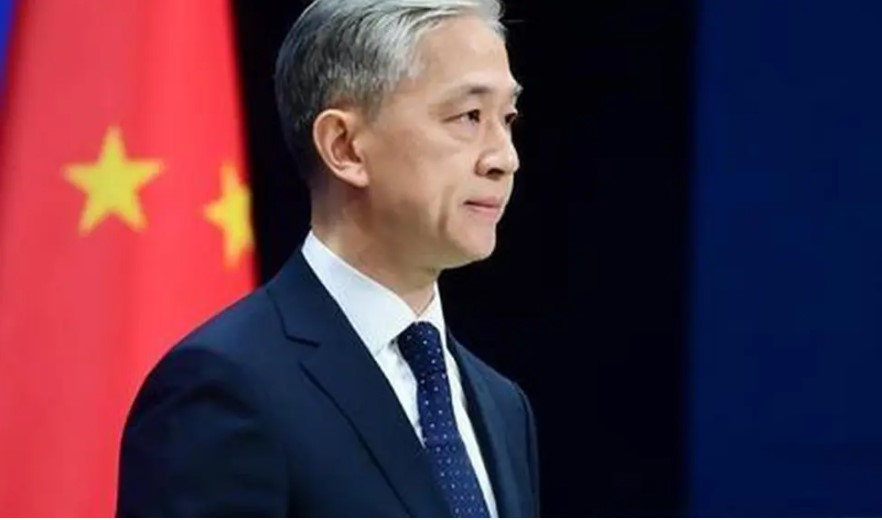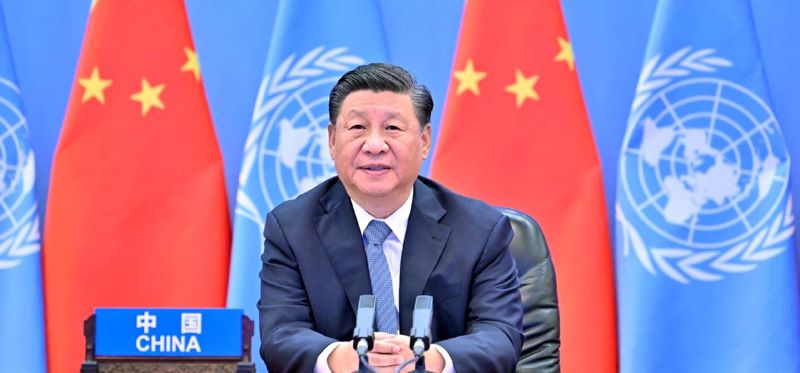Japan should not be a disrupter of a stable Asia-Pacific

Agency. Japanese Prime Minister Fumio Kishida recently made provocative remarks on the Taiwan question, maritime issues, and regional security during his visit to the United States.
His blatant interference in China's internal affairs and collusion with relevant countries to incite confrontation in the Asia-Pacific region seriously violated the basic norms in international relations. Such Cold War mentality and small group politics severely undermine the strategic security and interests of regional countries.
If the Japanese side keeps to its conspiracy and wrong perception of China, and acts recklessly, China will resolutely make necessary responses.
When discussing the situation in the Taiwan Strait, the United States and Japan expressed "strong opposition to any attempts to unilaterally change the status quo by force or coercion," which is a blatant interference in China's internal affairs.
It is a historical fact and an international consensus that there is only one China. The real status quo of the Taiwan question is: there is but one China in the world and Taiwan is part of China. The biggest threat to cross-Strait peace now is the separatist activities of "Taiwan independence" and the interference of external forces. It is for the purpose of safeguarding cross-Strait peace and stability that China resolutely curbs against separatist activities and interference from external forces.
Both the United States and Japanese governments have made serious commitments to China on the Taiwan question. In particular, Japan bears serious historical responsibilities for its aggression against Taiwan and colonial rule over the island, and should all the more honor its words and act prudently.
China's activities in the East China Sea and South China Sea are in full compliance with international law and there's nothing wrong about them. Diaoyu Dao and its affiliated islands are China's inherent territory. China will take firm measures against illegal moves that violate its sovereignty.
China has indisputable sovereignty over Nanhai Zhudao and its adjacent waters. China stands ready to continue to properly handle maritime issues with parties concerned through dialogue and consultation and jointly uphold peace and stability in the South China Sea. In the meantime, no one should violate China's territorial sovereignty and maritime rights and interests, and China remains steadfast in safeguarding its lawful rights.
A few countries including the United States and Japan wish nothing but chaos in the South China Sea. They blatantly support and back the Philippines' provocations and violation of China's sovereignty, stirring up troubles in the South China Sea, which causes serious threat to regional peace and stability.
Neither the United States nor Japan is directly involved in the South China Sea issue. They should respect the efforts made by regional countries in developing norms through negotiations and upholding peace and stability in the South China Sea. They should stop stirring up trouble and confrontation in the South China Sea.
The Japanese side claimed that China's current external stance and military actions present an "unprecedented and the greatest strategic challenge," not only to the peace and security of Japan but to the peace and stability of the international community at large.
Such remarks utterly twist the truth. China has never been a threat to Japan in their relations over the past 2,000 years. On the contrary, Japan's militarist past, marked by devastating wars of aggression against China and other Asian countries and brutal crimes against humanity, brought untold suffering on this region and beyond. Instead of drawing serious lessons from its past, Japan has displayed a dangerous tendency of rearming itself, stepping into a new wrong path, adding to the growing danger of history repeating itself.
Japan is exaggerating the security threats in its surrounding areas, with the ultimate goal of finding excuses to lift its military restrictions.
In recent years, the country has significantly readjusted its defense policy, continuously increased its annual defense spending, and loosened its arms exports restrictions, breaking free from the constraint of its pacifist Constitution. It doesn't care about exposing its military ambition, and has triggered concerns of its Asian neighbors and the international community.
The Japanese government is actively seeking to collude with NATO to interfere in Asia-Pacific affairs, aiming to create tension and confrontation by participating in defense cooperation with the trilateral security partnership among the United States, Britain and Australia, and other exclusive alliances. This attempt to pursue Japan's own strategic interests poses a hidden threat to regional security.
On one hand, the Japanese side claims to comprehensively promote the China-Japan strategic and mutually beneficial relations; on the other hand, it is increasingly hyping the so-called "China threat," trying to provoke confrontation. This is typical duplicity and has no credit at all.
Who is truly seeking peace, development and cooperation and who is fanning the flames, forming cliques and creating tensions? The answer is clear. China always works to defend world peace, contribute to global development, and safeguard international order.
China pursues the path of peaceful development and a defensive national defense policy. It has never started a war or posed a threat to any country.
Through the farce jointly staged by the United States and Japan to interfere in China's domestic affairs, contain China's development and smear China's image, the international community once again sees clearly that forming cliques and inciting bloc confrontation is the true challenge to regional peace and stability.
The Asia-Pacific region is a promising land for peace and development. It should not be turned into a boxing ring for major power rivalry, still less a battlefield of a cold war or hot war.
The peace and stability as well as economic development in the Asia-Pacific region are the trend of the times and the will of the people. Japan should not become a disrupter of a stable Asia-Pacific and stop finding excuses for loosening military restrictions by fanning up surrounding military threats, in order to avoid further loss of trust from neighboring Asian countries and the international community.
(Zhong Sheng is a pen name often used by People's Daily to express its views on foreign policy and international affairs.)











प्रतिकृया दिनुहोस